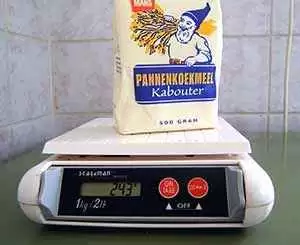Celiac.com 12/05/2014 - To remain healthy, people with serious gluten intolerance, especially people with celiac disease, must avoid foods containing gluten from wheat, barley, and rye. Accordingly, gluten detection is of high interest for the food safety of celiac patients.
 The FDA recently approved guidelines mandating that all products labeled as “gluten-free” contain less than 20ppm (20mg/kg) of gluten, but just how do products labeled as “gluten-free” actually measure up to this standard?
The FDA recently approved guidelines mandating that all products labeled as “gluten-free” contain less than 20ppm (20mg/kg) of gluten, but just how do products labeled as “gluten-free” actually measure up to this standard?
Celiac.com Sponsor (A12):
Researchers H.J. Lee, Z. Anderson, and D. Ryu recently set outto assess the concentrations of gluten in foods labeled "gluten free" available in the United States. For their study, they collected seventy-eight samples of foods labeled “gluten-free,” and analyzed the samples using a gliadin competitive enzyme-linked immunosorbent assay. They then calculated gluten content based on the assumption of the same ratio between gliadin and glutenin, testing gluten levels down to 10ppm (10mg/kg).
They found that forty-eight (61.5%) of the 78 samples labeled gluten-free contained less than 10ppm (10 mg/kg) gluten. Another 14 (17.9%) of the 78 samples contained less than 20ppm (20mg/kg) gluten, in accordance with the guidelines established by the Codex Alimentarius for gluten-free labeling.
However, 16 samples, over 20%, contained gluten levels above 20 mg/kg, ranging from 20.3 to as high as 60.3 mg/kg. Breakfast cereal was the main culprit, with five of eight breakfast cereal samples showing gluten contents above 20ppm (20 mg/kg).
The study does not name specific brands tested, nor do they indicate whether tested brands are themselves monitored by independent labs. Still, the results, while generally encouraging, show that more progress is needed to make sure that all products labeled as “gluten-free” meet the FDA guidelines. Until that time, it’s a matter of “caveat emptor,” or “buyer beware,” for consumers of gluten-free foods.
Source:
- Open Original Shared Link






Recommended Comments